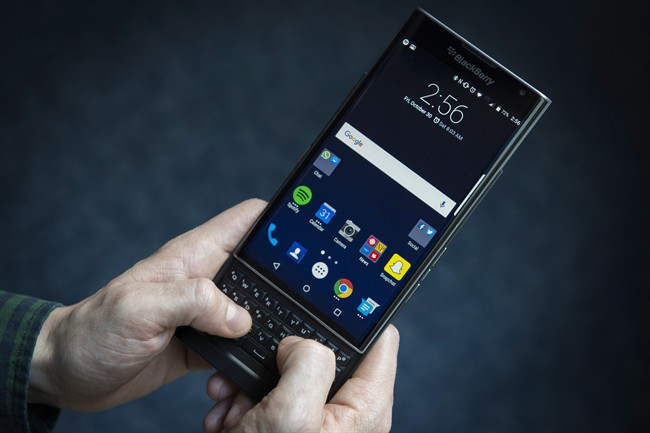A new report has seemingly put the final nail in the coffin for BlackBerry’s original smartphone business. According to a report published Wednesday by Gartner, the one-time Canadian tech darling’s share of the global smartphone market is now 0.0 per cent.

READ MORE: BlackBerry posts $117M Q3 loss, smallest this year
Gartner, which publishes an annual overview of the global smartphone market share, found that of the 432 million smartphones sold worldwide in the fourth quarter (Q4) of 2016, only 207,900 were BlackBerry devices running the company’s own operating system.
In comparison, over 352 million smartphones running Google’s Android operating system were sold in Q4 2016, making up 81.7 per cent of the market. Apple came in second, with 77 million units, accounting for 17.9 per cent of the market.

However, it’s important to note this report only takes into consideration the share of BlackBerry handsets running the company’s own operating system.
BlackBerry now sells handsets that run Android, including the BlackBerry Priv and DTEK60, which are not included in Gartner’s figures. Those phones would fall under Android’s market share.
READ MORE: What’s next for BlackBerry now that it has kissed smartphones goodbye?
In October, BlackBerry made the long-awaited announcement that it will stop designing and manufacturing smartphones so that it can focus on designing software. This rebranding from smartphone giant to software creator has been slowly evolving over the last few years as the company’s phones lost favour to Apple’s iPhones and Android devices from competitors like Samsung.
Moving forward, all internal hardware development will be outsourced to BlackBerry’s partners.
In December, the Canadian tech company reported a third-quarter loss of US$117 million, the smallest of the financial year.
The company’s focus on software development, includes a $100-million investment in a new autonomous vehicle-testing hub in hopes to make itself an indispensable, under-the-hood piece of the automotive industry’s weaponry in the race to get self-driving vehicles on the road.




Comments